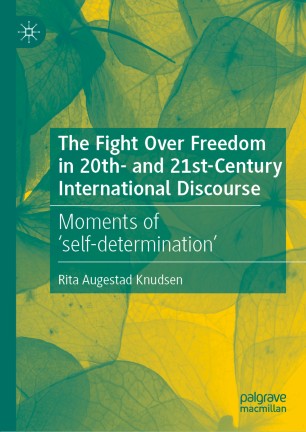

Most ebook files are in PDF format, so you can easily read them using various software such as Foxit Reader or directly on the Google Chrome browser.
Some ebook files are released by publishers in other formats such as .awz, .mobi, .epub, .fb2, etc. You may need to install specific software to read these formats on mobile/PC, such as Calibre.
Please read the tutorial at this link: https://ebookbell.com/faq
We offer FREE conversion to the popular formats you request; however, this may take some time. Therefore, right after payment, please email us, and we will try to provide the service as quickly as possible.
For some exceptional file formats or broken links (if any), please refrain from opening any disputes. Instead, email us first, and we will try to assist within a maximum of 6 hours.
EbookBell Team

4.8
104 reviewsThis book shows how international discourse citing ‘self-determination’ over the last hundred years has functioned as a battleground between two ideas of freedom: a ‘radical’ idea of freedom, and a ‘liberal-conservative’ idea of freedom. The book examines each of the major moments in which ‘self-determination’ has been a central part of the language of high-level international politics and law: the early 20th century discourse of V.I. Lenin and U.S. President Woodrow Wilson, the aftermath of the First World War and the formulation of the UN Charter, the 1950-1960s UN debates on ‘self-determination’, and the 2008-2010 International Court of Justice case on Kosovo’s declaration of independence. At each of these moments in history, ‘self-determination’ was at the top of the international agenda. And at each moment, a fight over the meaning of freedom played out in ‘self-determination’ discourse. Besides providing insights into the historical times in which self-determination was prominently cited internationally, the book offers a recasting and renewal of international debates on freedom in international discourse.